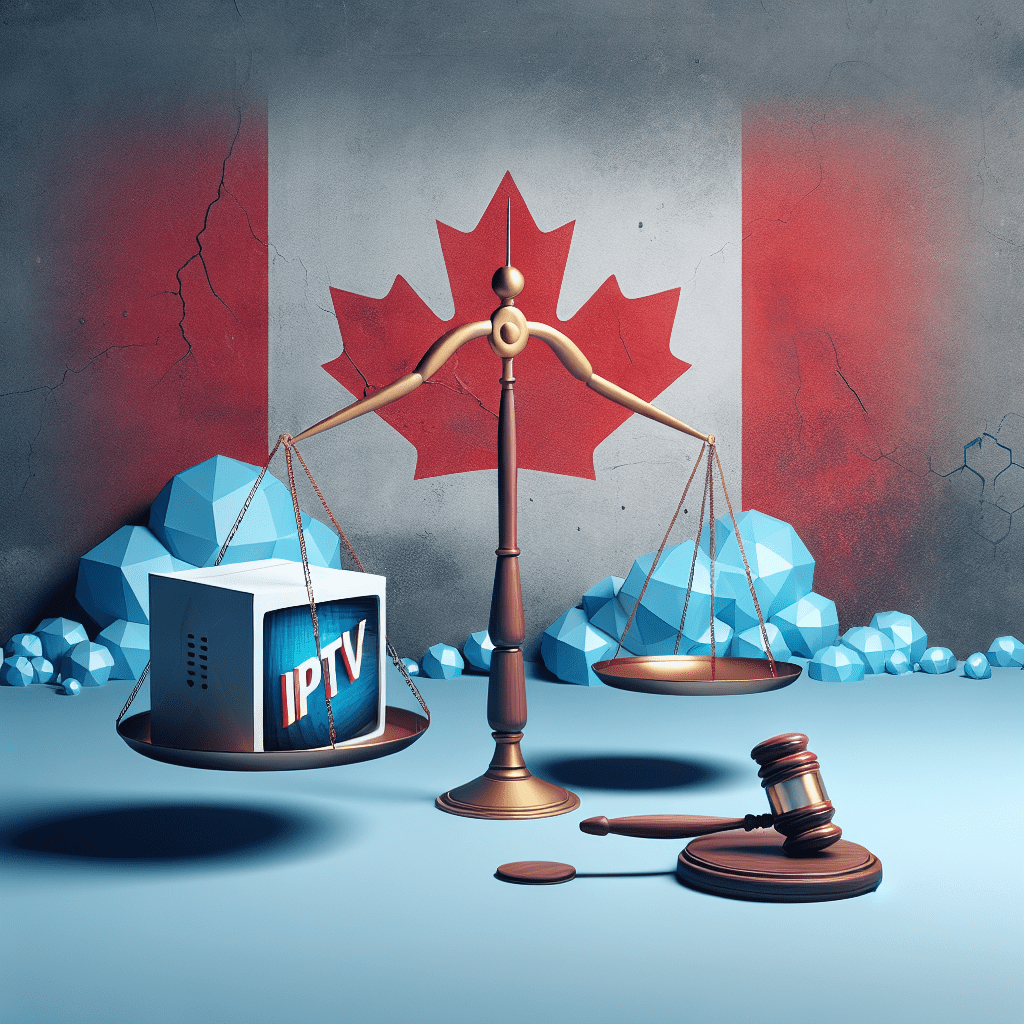===
In recent years, the rise of IPTV (Internet Protocol Television) services has transformed the way Canadians consume media, offering unprecedented access to a vast array of content. However, this shift has not come without its challenges, particularly in the realm of legality and compliance. Many IPTV services operate in a gray area, raising concerns among content creators and established broadcasters about copyright infringement and revenue loss. These concerns have prompted law enforcement agencies in Canada to take action against unauthorized IPTV providers, leading to a complex landscape of enforcement initiatives and legal complexities. In this article, we delve into the intricacies of IPTV services in Canada and examine the latest law enforcement actions targeting these providers.
Overview of IPTV Services and Legal Challenges in Canada
IPTV services have gained popularity in Canada due to their ability to deliver content over the internet, bypassing traditional cable and satellite systems. With a growing number of consumers seeking alternatives to conventional television packages, numerous IPTV providers have emerged, offering everything from live TV channels to on-demand programming. While legitimate services exist, many providers operate without proper licensing, delivering pirated content that infringes on copyright laws. This not only undermines the revenue of legitimate broadcasters but also creates a tumultuous environment for consumers who may unwittingly subscribe to illegal services.
The legal landscape surrounding IPTV services in Canada is marked by ambiguity and evolving regulations. The Canadian Radio-television and Telecommunications Commission (CRTC) regulates broadcasting in the country, but the rapid development of internet-based services has outpaced the existing regulatory framework. Many IPTV providers exploit this regulatory lag, leading to widespread accessibility of unauthorized content. This situation has cultivated an environment rife with potential legal consequences for both providers and consumers, as unsuspecting users risk facing penalties for engaging with illegal services.
As content creators and traditional broadcasters fight back against the encroachment of unauthorized IPTV services, the narrative continues to evolve. Legal challenges surrounding copyright infringement are becoming more pronounced, with high-profile cases highlighting the risks associated with pirated content. The increasing awareness of these issues has prompted a call for stricter regulations and enforcement measures, fostering a climate where consumers are encouraged to understand the legalities of their viewing choices and opt for legitimate services.
Recent Law Enforcement Initiatives Targeting IPTV Providers
In recent months, law enforcement agencies in Canada have intensified their efforts to crack down on illicit IPTV providers. These initiatives come as a response to the rising concerns over copyright infringement and the significant economic impact it has on legitimate broadcasters. Operations have included coordinated raids on suspected IPTV service providers and the seizure of equipment believed to be used in the illegal distribution of copyrighted content. These actions underscore the seriousness with which Canadian authorities are approaching the issue of unauthorized IPTV services.
One notable initiative involved collaboration between the Royal Canadian Mounted Police (RCMP), local law enforcement, and industry stakeholders to identify and dismantle networks of IPTV providers operating without licenses. This approach reflects an understanding that the challenges presented by IPTV transcend mere copyright infringement; they also involve complex networks that can potentially engage in money laundering and other illicit activities. The investigations have resulted in the arrest of several individuals and the dismantling of operations that were found to be distributing pirated content on a large scale.
In addition to these enforcement actions, public awareness campaigns have been launched to educate consumers about the risks associated with using unauthorized IPTV services. These campaigns aim to inform viewers about the potential legal repercussions and the quality issues often associated with pirated content. By fostering a better understanding of the legalities surrounding IPTV, authorities hope to encourage consumers to seek legitimate alternatives and support the creators and broadcasters who provide quality content.
===
The landscape of IPTV services in Canada is fraught with challenges as law enforcement agencies ramp up their actions against unauthorized providers. As the legal framework adapts to the digital age, both consumers and content creators must navigate the complexities of this evolving environment. By remaining informed and vigilant, viewers can make educated choices that not only enhance their viewing experiences but also support legitimate services that contribute to the vibrant media landscape in Canada. As we move forward, it is imperative that we champion the rights of content creators while seeking innovative solutions that benefit all stakeholders in the industry.
Exploring the Impact of 40,000 Daily Steps on Weight LossEffective Yoga Poses for Optimal Weight Loss and WellnessComprehensive Reviews of Happy Mammoth Weight Loss ProgramRelevant LinkRelevant LinkRelevant Link




